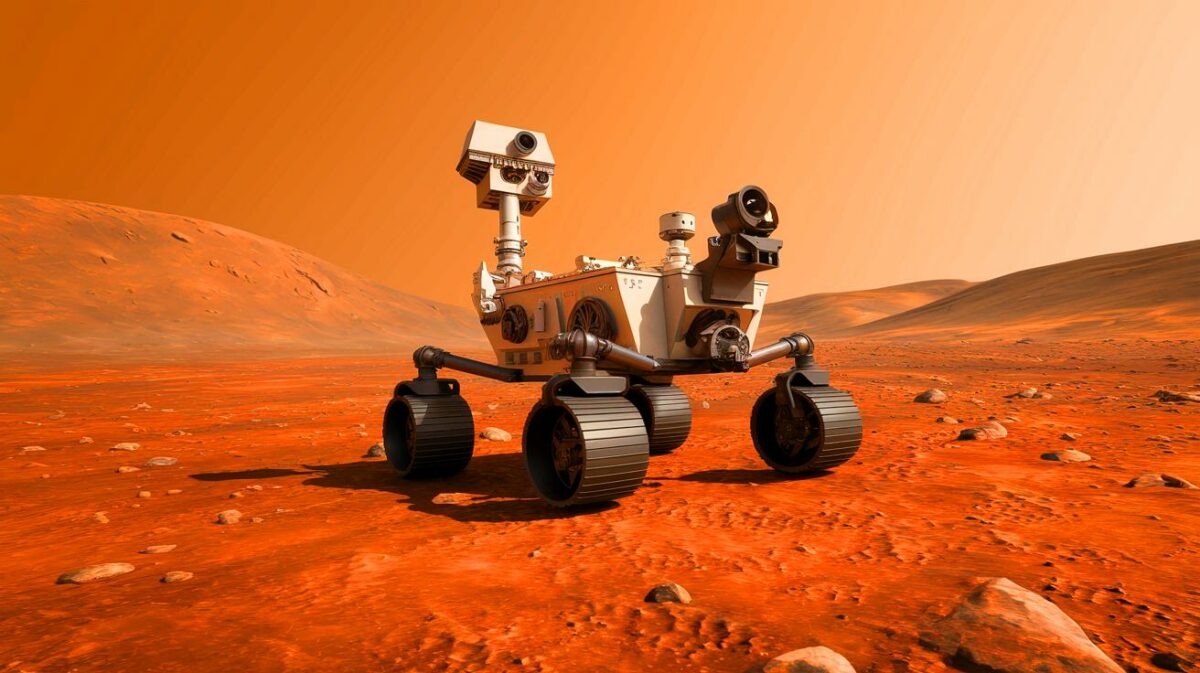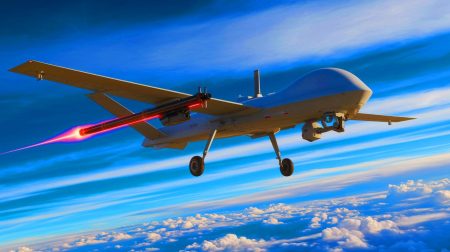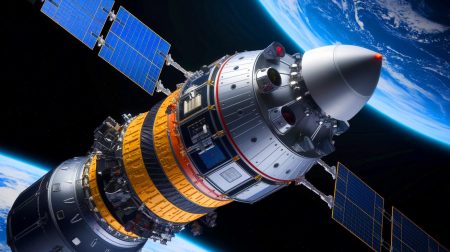| IN A NUTSHELL |
|
The European space sector is on the brink of an exciting breakthrough with the anticipated launch of the Rosalind Franklin rover. This ambitious mission, spearheaded by the European Space Agency (ESA) and supported by Airbus UK, is set to place the first European rover on Mars by 2028. Backed by significant funding from the UK Space Agency, the project is not only drawing international investment but also stimulating the creation of numerous high-skilled jobs in the United Kingdom. At the heart of this mission lies cutting-edge technology designed to overcome Mars’ extreme climate, promising discoveries that could revolutionize our understanding of the universe.
A Strategic Investment for a Historic Mission
The European Space Agency has awarded a substantial contract worth $204 million to Airbus UK to complete the landing system for the Rosalind Franklin rover. This strategic investment, secured by the UK Space Agency, is pivotal in attracting international investment and ensuring the creation of hundreds of skilled jobs in the UK’s space sector. The rover will utilize a nuclear-powered device to operate in Mars’ hostile environment, where temperatures can plummet to -148 degrees Fahrenheit. Utilizing innovative radioisotope heating units (RHUs), the rover will remain warm and operational, converting decaying isotopes such as americium-241 into heat and electricity.
Scientists create heat-resistant super corals that could save entire marine ecosystems from collapse
This ambitious project leverages the expertise of several British institutions, including Airbus, which is responsible for designing the mechanical, thermal, and propulsion systems to ensure the rover’s safe landing on Mars. Airbus teams in Stevenage, under contract with Thales Alenia Space, will also construct the landing structure and the propulsion system for the final braking phase, ensuring the rover’s safe descent.
Miracle Down Under: Australian Patient Walks Free with Artificial Heart After 100+ Days
Unveiling Mars’ Ancient Secrets
The mission of the Rosalind Franklin rover is to search for signs of ancient life, such as fossilized microbes, and to uncover clues about the origins of our solar system. This project relies on advanced robotics and autonomous navigation developed in the UK, technologies that are also applicable to extreme terrestrial environments like nuclear plants and deep oceans. Paul Bate, CEO of the UK Space Agency, described this mission as a science-defining endeavor for humanity, offering the best chance yet to discover if life ever existed on Mars.
Airbus teams are working closely with Thales Alenia Space to design the crucial systems that will ensure the rover’s successful landing. Two ramps will be deployed on either side of the lander to provide the safest descent path for the rover. This collective effort marks a critical step in understanding not only Mars but also the evolution of our planet.
Revolutionary British Technology
Several British universities are playing a crucial role in the development and launch of the rover, engaging in an unprecedented collaboration. Researchers from the Mullard Space Science Laboratory at University College London, alongside teams from Aberystwyth University, Birkbeck College, and the University of Leicester, are developing the panoramic camera system (PanCam) for the rover. Aberystwyth researchers are also constructing an infrared spectrometer to identify promising rocks for drilling and testing for signs of ancient life.
Kata Escott, Managing Director of Airbus Defence and Space UK, highlighted that despite the mission’s challenges, it will significantly advance the UK’s space expertise. Rosalind Franklin will be the first Mars rover capable of analyzing samples from six and a half feet beneath the surface, searching for past or present life. This mission will propel the UK’s space knowledge forward and advance our collective understanding of our solar system.
Key Partners Table
| Partner | Role |
|---|---|
| Airbus UK | Design and construction of the landing system |
| Thales Alenia Space | System integration and overall coordination |
| University College London | Development of the panoramic camera system |
| Aberystwyth University | Construction of the infrared spectrometer |
As the Rosalind Franklin rover gears up for its mission, expectations are high for this project that could redefine our knowledge of Mars. This journey to the red planet is not only a scientific quest but also a source of inspiration for future generations. By adopting advanced technologies and uniting exceptional talents, Europe is positioning itself as a leader in space exploration. What will we discover beneath Mars’ surface, and how will these revelations shape our understanding of the universe?
Did you like it? 4.5/5 (24)









Wow, Airbus landing on Mars before Boeing? That’s a plot twist! 🚀
It doesn’t launch for another FIVE YEARS. Nothing on this website can be trusted to be actual news. It’s just clickbait.
It doesn’t launch for another five years.
Can someone explain how the nuclear-powered device works? Seems risky! 🤔
Congrats to Airbus and the UK Space Agency! This is a huge leap for Europe. 👏
Why is Boeing not part of this mission? Are they falling behind? 🤔
Is this rover related to the ExoMars mission, or is it something completely new?
I hope Airbus has better luck landing than they do with airplanes sometimes! 😂
It doesn’t launch for five years.
Looking around, it’s obvious this site is nothing but clickbait. You’re an idiot if you believe any of it is actually news.
Very good Matt and this not the only site spreading shit like this, the internet has unfortunately become a clickbait pool of shit